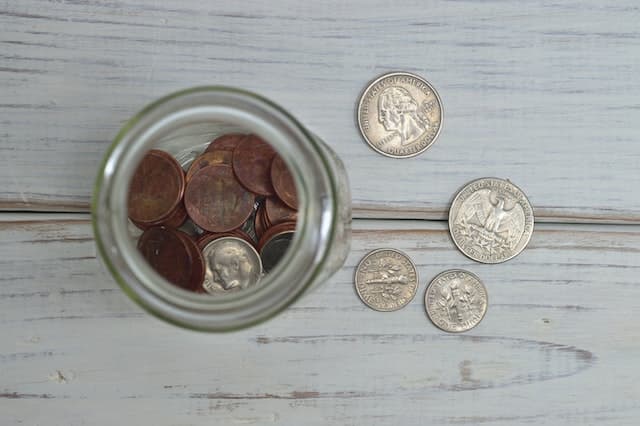Bankruptcy is a term that can evoke a sense of fear, shame, and failure. Associated with images of destitution and despair, it’s often a result of poor financial decisions or unforeseen circumstances. Yet, this stigma surrounding bankruptcy can sometimes obscure a more nuanced truth: bankruptcy is not the end of the road but often a turning point on the journey to financial recovery. It’s a legal tool designed to help individuals and businesses find relief from insurmountable debt and start afresh. When navigated correctly, bankruptcy is a stepping stone toward a more stable and prosperous financial future. In this blog, we aim to shed light on the misunderstood concept of bankruptcy, debunk common myths, and, most importantly, guide you on how bankruptcy can help you build a better financial future and turn this challenging situation into a powerful opportunity for financial growth and resilience. Let’s embark on this journey together.
Understanding bankruptcy: debunking the myths
One of the prevailing myths about bankruptcy is that it is the death knell for all our dreams for the future or a sign of personal failure. Quite the contrary, bankruptcy can help you build a better financial future and provides a fresh start to those burdened by unmanageable debts. Another big myth about bankruptcy is that it leaves a permanent black mark on your credit report. While it’s true that bankruptcy can stay on your record for up to 10 years, its impact diminishes over time, especially if you adopt sound financial habits.

How bankruptcy provides a fresh start
Bankruptcy provides a path to financial recovery by either erasing or restructuring debt. There are several different types of bankruptcy. We list two of the most common ones. Chapter 7, or “liquidation bankruptcy,” involves selling your assets to repay your debts. Chapter 13, or “reorganization bankruptcy,” allows you to keep your assets while following a court-approved repayment plan. This process gives you a clean slate, setting the stage for more responsible financial habits and paving the way to a healthier economic future. Bankruptcy is not a one-size-fits-all solution but a range of options tailored to different financial circumstances.
Strategies for rebuilding your credit after bankruptcy
Navigating your financial life after bankruptcy requires careful planning and disciplined habits. To improve your credit score post-bankruptcy, obtain a secured credit card or a credit-builder loan, and make regular, on-time payments. It’s also crucial to keep your credit utilization low. Consistently paying off your balance shows lenders your commitment to responsible credit use. Regularly monitoring your credit report is another essential step. It allows you to spot errors and understand how your financial behavior influences your score. As you employ these tactics, you’ll find that it’s entirely possible to rebuild your credit after bankruptcy and regain financial independence.

Bankruptcy can help you build a better financial future: Creating a budget
Budgeting helps you to manage your income and expenses effectively, ensuring you live within your means and save for the future. First, list down all your income sources and expenditures, then prioritize your spending based on necessities. Consider downsizing or long-distance moving from high-cost areas like Miami to lower your living expenses. Remember, reach out to the right team for moving and hire movers to make it all easier for yourself. Regularly review and adjust your budget to keep it relevant and effective. Your commitment to a structured budget is crucial to maintaining your chance of a secure financial future.
Building an emergency fund to prevent future financial crisis
The emergency fund acts as a financial buffer, protecting you from unexpected expenses or income loss and keeping you from falling back into debt. To build an emergency fund, start by setting a realistic savings goal, typically three to six months’ worth of living expenses. Next, create a dedicated savings account and automate your savings by setting up regular transfers from your checking account. Even small, consistent contributions can add up over time. Lastly, resist the urge to tap into this fund for non-emergencies. Remember, the purpose of this fund is to safeguard you from future financial crises.

Smart financial practices to adopt post-bankruptcy
Adopting smart financial practices after bankruptcy is critical to achieving economic stability. Start with responsible consumption; avoid impulse purchases and focus on needs rather than wants. Consider moving to a cheaper home to lower your monthly expenses. Professionals at 24/7 logistics services advise on finding an adequate storage unit for belongings during this transition. In addition, prioritize savings – try to set aside a portion of your income each month. Equally important is improving your financial literacy. Take workshops, read books, or use online resources to understand key financial concepts. Remember, knowledge is power – the more you know, the better decisions you can make about your money.
Seeking professional guidance for financial success
Navigating the path to financial success post-bankruptcy can be challenging, and professional guidance can make the journey smoother. Financial advisors, bankruptcy lawyers, or credit counselors can provide valuable advice tailored to your situation. They can help you devise a sound financial plan, including budgeting, debt management, and investing strategies. Consider their qualifications, experience, and fee structure when seeking a professional. Check for certifications like Certified Financial Planner (CFP) or Accredited Financial Counselor (AFC). Additionally, look for professionals with a fiduciary duty, meaning they are ethically bound to act in your best interest.
Making the Most of Your Fresh Start: Investing in Your Future
With bankruptcy behind you and a clean slate ahead, it’s time to make the most of your fresh start by investing in your future. Long-term investing, especially in diversified assets like stocks, bonds, and mutual funds, can help grow your wealth over time due to the power of compounding. Remember, it’s not about timing the market, but time in the market that counts. To get started, educate yourself about different investment options, risks, and returns. Start small, perhaps with a low-cost index fund, and gradually increase your investment as your comfort and understanding grow. It’s a proactive step towards building a secure financial future.
Conclusion
While challenging, bankruptcy can help you build a better financial future. It offers a clean slate by eliminating or reorganizing your debts. It also provides an opportunity to adopt improved financial practices. The key steps are :
- Rebuilding your credit,
- Creating a budget,
- Establishing an emergency fund, and
- Investing wisely for long-term financial growth.
As you can see, bankruptcy can help you build a better financial future. Seeking professional guidance can further enhance your journey toward financial stability. Each responsible financial decision takes you one step closer to a secure and prosperous future.
The Law Firm of Freire & Gonzalez, P.A., is ready to guide you through bankruptcy and help you regain control of your finances and your life. If you have any questions, please contact us at 305-826-1774 and our locations:
Bankruptcy Lawyers Fort Myers, FL



